It would be so easy to convert the majority of vegans back into omnivores. All you’d need to do is take away the modern food distribution system servicing grocery stores, supermarkets, food buying clubs, and restaurants. Most vegans do not garden or produce their own fruits, vegetables, nuts, seeds, fungi, grains, tubers, or legumes. Some shop at farmers markets for some of their food, but probably not all of their food.
Without a store, market, or restaurant from which to access their plant-based food, vegans would be forced to forage and start gardening. Gardening takes a while to produce edibles and foraging plants requires some basic understanding for safety. Once vegans got hungry enough they would probably scavenge road kill or left-overs from a carnivore’s catch. When things got desperate, they would probably hunt, kill, and consume small animals and eventually larger animals. If enough calories were not obtained, death would ensue. Eating someone else (squirrel, fish, deer, etc.) oftentimes is the most efficient use of an human’s energy expenditure to satisfy their caloric need in order to survive when there is no other option.
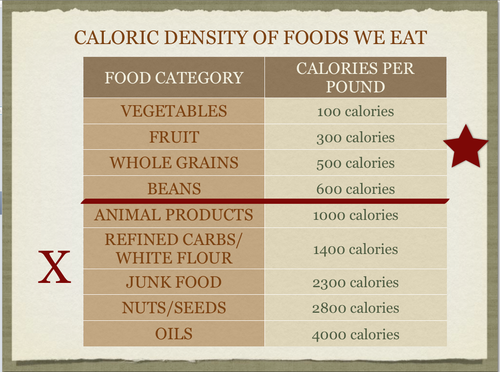
It would be very much like the days of early humans who had to survive in the wilderness without the benefit of an organized food distribution system. I doubt there were any vegan humans in the paleolithic era. They were omnivorous foragers (gatherers and hunters) who eventually became animal and plant farmers. The industrial and modern food distribution systems allowed more people to leave the fields and purchase food instead of grow or raise it themselves.
We could get vegans back into the fields and back into the wilderness and feasting on animals if we removed the modern food distribution system.
But why would anyone want to do this?
I don’t know but this mental exercise helps everyone to understand and acknowledge that the modern food distribution system alone makes it super easy for just about anyone in a developed country to be vegan. We don’t need grocery stores to bring us farmed animals if the stores are already bringing us sufficient calories and nutrition in abundant plant foods. We once ate animals in the wild to survive. We ate animals from the family field, milk from the family barn, and eggs from the family coop to survive. Now we have large farms & grocery stores doing all the hard, laborious work for us. We can go to the store and buy all the plant-foods we need to survive & thrive without needlessly killing anyone!
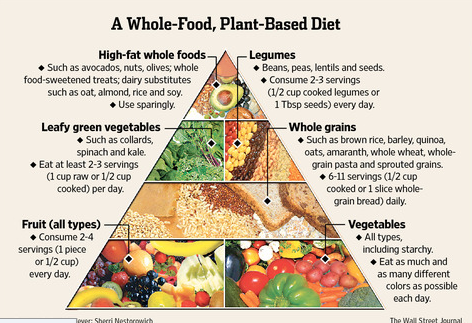
As long as you have access to a decent grocery store, which many of us do, you can be vegan with minimal extra effort. It takes just as much effort to get to the store, push a buggy up and down the aisles, pay for the groceries, and get the purchases home whether you are choosing all plant-based options or a mixture of plant-based and animal-based options. The initial extra effort would consist of finding some new vegan recipes and acquiring a basic understanding of vegan nutrition. After the initial start up, vegan habits become automatic, effortless, and as mindless as any other habit.
Many people living in under-developed nations or locations and those who live in urban or rural food deserts reaturing only convenience stores, liquor stores, limited food markets, and fast food establishments eat what they have access to, making it more difficult to choose a vegan, or even healthful, diet. This is an issue of food justice as everyone has the right to access affordable and healthful food. Most of us reading this blog post live in developed locations with access to a decent grocery store or five.
So why write a blog post with such an absurd title?
Simply to illustrate that if you have access to a decent grocery store, only your excuses come between you and a compassionate, environmentally conscious, and healthful diet. Only a plant-based diet can reverse and prevent many chronic diseases, slow climate change, and reduce animal abuse.
Because a historically omnivorous diet for survival has been retained, normalized & commercialized over time by modern society, people think that they need to consume animal flesh (meat) and fluids (eggs, milk) for health. But there is no human nutritional need for the bodies or excretions of animals. Animals were once eaten only to consume enough calories to survive. The continual and unnecessary consumption of meat, dairy, and eggs contributes to heart diseases, cancer, obesity, and diabetes all while causing deforestation, species extinction, and ocean dead zones. Animal food industry marketing and politics have done an excellent job at keeping most of us blind to the realities of animal production & consumption.
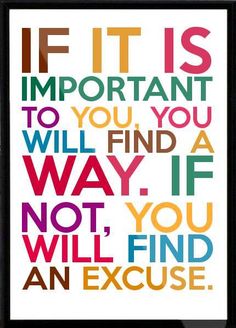
We are living in the modern era. Shouldn’t our food habits and food choices reflect modern medical & environmental science and the capabilities of an evolved food production and distribution system? If we don’t need to forage or hunt to survive, why do we think that we need to go to the grocery store and buy animals? We are taking an outdated source of calories and distributing it in a modern food system that doesn’t need it. We are hanging on to a practice that once helped us to survive and now is killing us.
I’d like to think that the average adult is stronger than his taste buds. Most vegans don’t become vegan because they suddenly dislike the taste of cheeseburgers, chocolate ice cream, omelets, pepperoni pizza, Brie cheese, and bacon. Plant-based vegans intentionally chose a different diet to save their health, to keep Earth inhabitable by humans, and/or to stop artificially breeding large populations of farmed animals just to callously kill and unnecessarily consume them.
A desire to do more benefit than harm in life, a willingness to eat differently than your family or peers, and a commitment to living in accordance with your ethical beliefs can all trump taste buds until they come around and play nicely. Taste buds change over time, they are not fixed. Once upon a time my favorite meal was a ribeye steak and a Jack & Coke cocktail. I don’t miss that cowgirl meal. I ate it before I was aware of all the harm I was causing to me, the animals, and our planet. Now I and my taste buds get excited over baked potatoes, salsa, and cashew sour cream.
Some people feel that life wouldn’t be worth living without cheese or bacon. What if you could live a longer and healthier life without them while enjoying fatty, salty plant-based alternatives that satisfy the taste buds in different but equally happy ways? Can you imagine being that person who gets giddy with excitement over an aged cashew cheese, avocado chili toast, gourmet peanut butter & jelly sandwiches, pasta veggie marinara, nutty fruity oatmeal with almond milk, guacamole and warm corn chips, platters of Thai coconut curry, black bean, or roasted garlic hummus, or chipotle french fries? Chances are you already enjoy some of these delicious plant-based vegan foods.
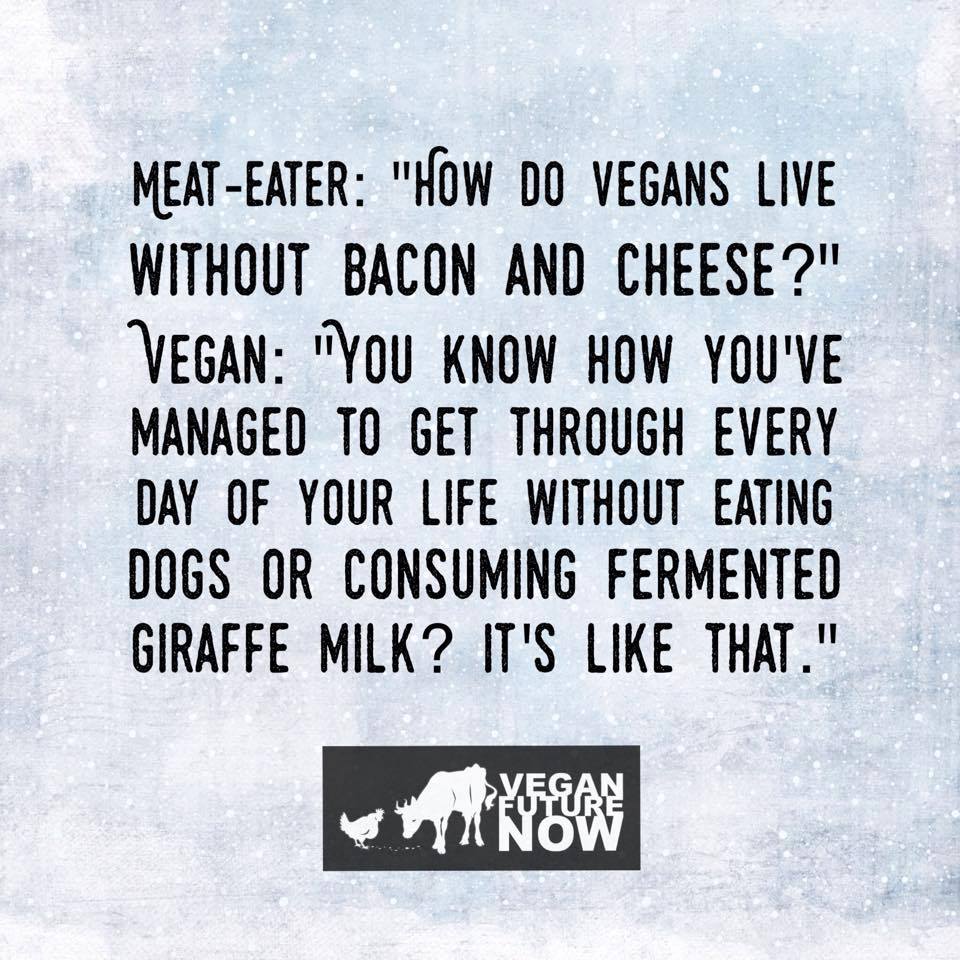
With the plethora of free vegan recipes online and endless vegan cookbooks, learning how to cook plant-based meals is really no more difficult than learning a new omnivorous recipe. There may be an ingredient or two that you may not be familiar with initially (nutritional yeast, tofu, tempeh, plant milks, etc.) but using the almighty Google will acquaint you. Many vegan recipes use only foods that you’re familiar with….like beans, rice, onions, peppers, spices, and herbs. Joining vegan groups online is a great way to discover newbie, simple, fast, gourmet, or holiday recipes and provide a safe learning environment as you transition.
I did not go vegan overnight and no one expects you to either. Some people have and many will, but I believe that change for most of us involves incremental new choices as information is learned and discoveries are made.
If you have access to a decent grocery store use it in service to your health, the health of your family, the health of the planet, and in respect to the animals who do not want to suffer or die. Buy plants. The hard work of growing, transporting, and displaying them has been done for you…you just need to put it in the buggy, get it home, cook it up, and enjoy it!
Additional Resources
• Johns Hopkins on Health & Environmental Implications of Animal Consumption
• Nutrition Only in Animal-Based Foods
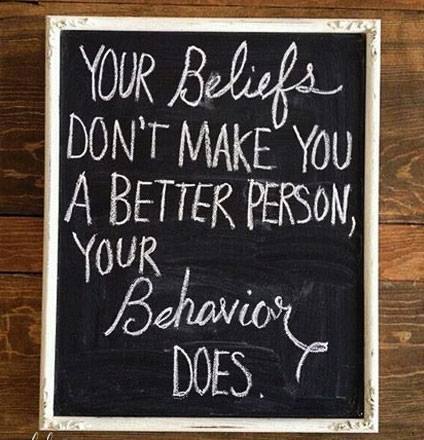

{ 0 comments… add one now }